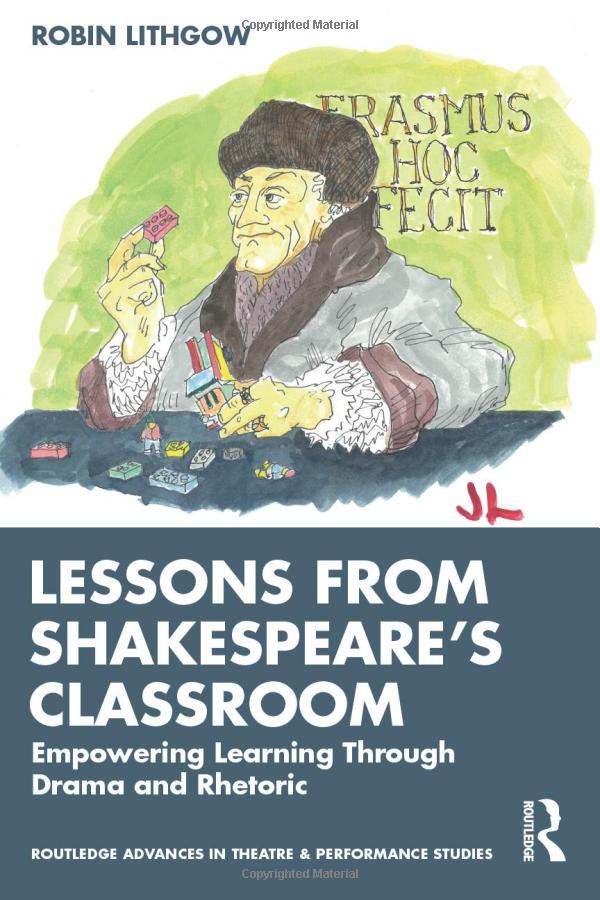I love hearing actors deftly inhabit Shakespeare’s language and watching his stories unfold on stage until everyone is dead, dancing, or married. Reading his plays is a different story. I get tangled in the written language. Yet, reading Robin Lithgow’s manuscript, I didn’t trip, I got enchanted.
I couldn’t stop reading it.
Granted, it’s written in modern English, but its subject — the drama and rhetoric that Shakespeare learned as a schoolboy, and employed in his plays, is featured throughout. Taking the reader back to the Bard’s school days caught and held my attention, because the way youth were taught then profoundly clashes with education today where test scores are worshipped as the most potent indicators of learning.
Educators Erasmus and Mulcaster, and their students, including Shakespeare, would beg to differ. They didn’t turn into the most influential generation of playwrights in the Western world because they excelled at taking tests. Lithgow shows us how, and more importantly, why, their education prepared them to brilliantly tell stories of enduring resonance.
I had the good fortune of helping Lithgow develop the manuscript for publication and edit the query letter, as well as, in collaboration with Susan Shankin of Precocity Press, write the pre-publication marketing plan.
Our combined, collaborative efforts succeeded in reaching the most desired outcome — a 2023 publishing contract with one of the world’s most prestigious academic publishers — Routledge.
This is a book worth reading and sharing.
...we have wandered far afield of the core purpose of education, which, yet again, is for the benefit of the commonwealth: the training up of citizens with the courage to think creatively and critically, to problem solve, and to exhibit what the famous 16th-century pedagogue, Richard Mulcaster, would have called good behavior and audacity.
Robin Lithgow Tweet


